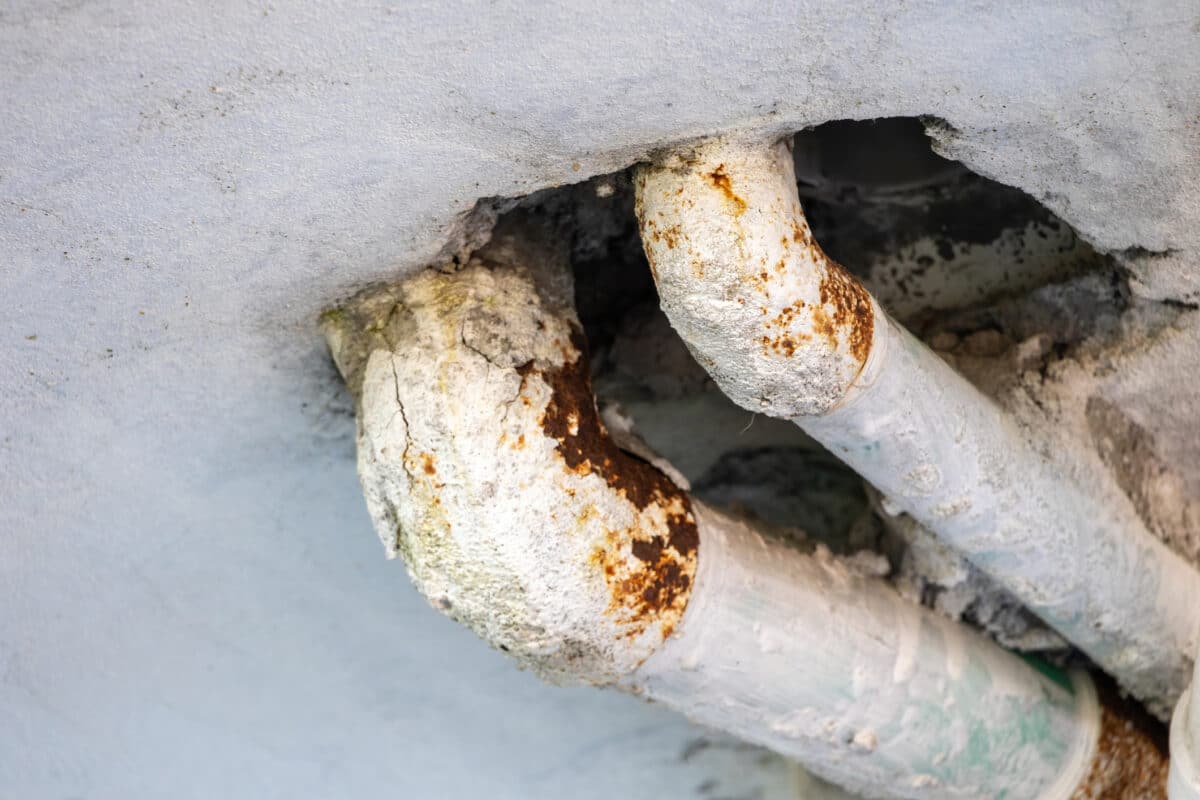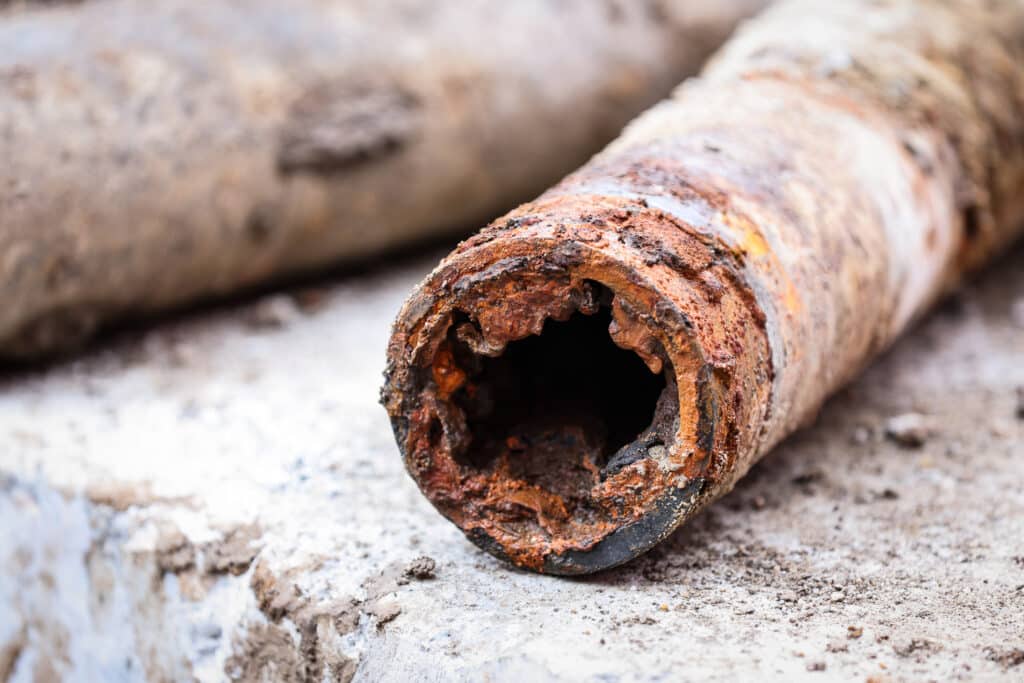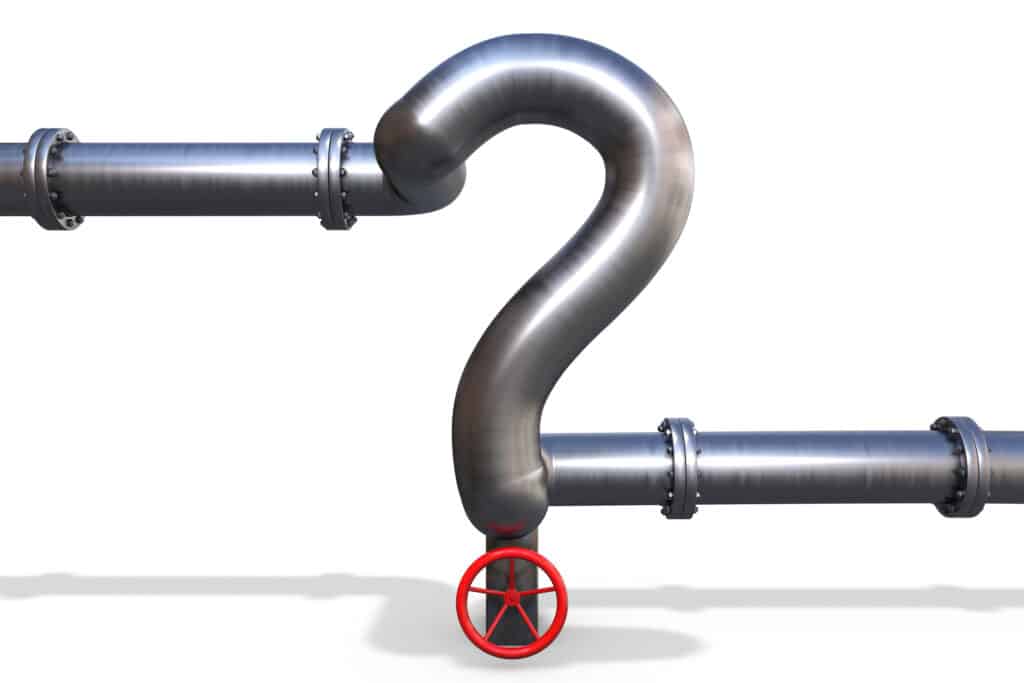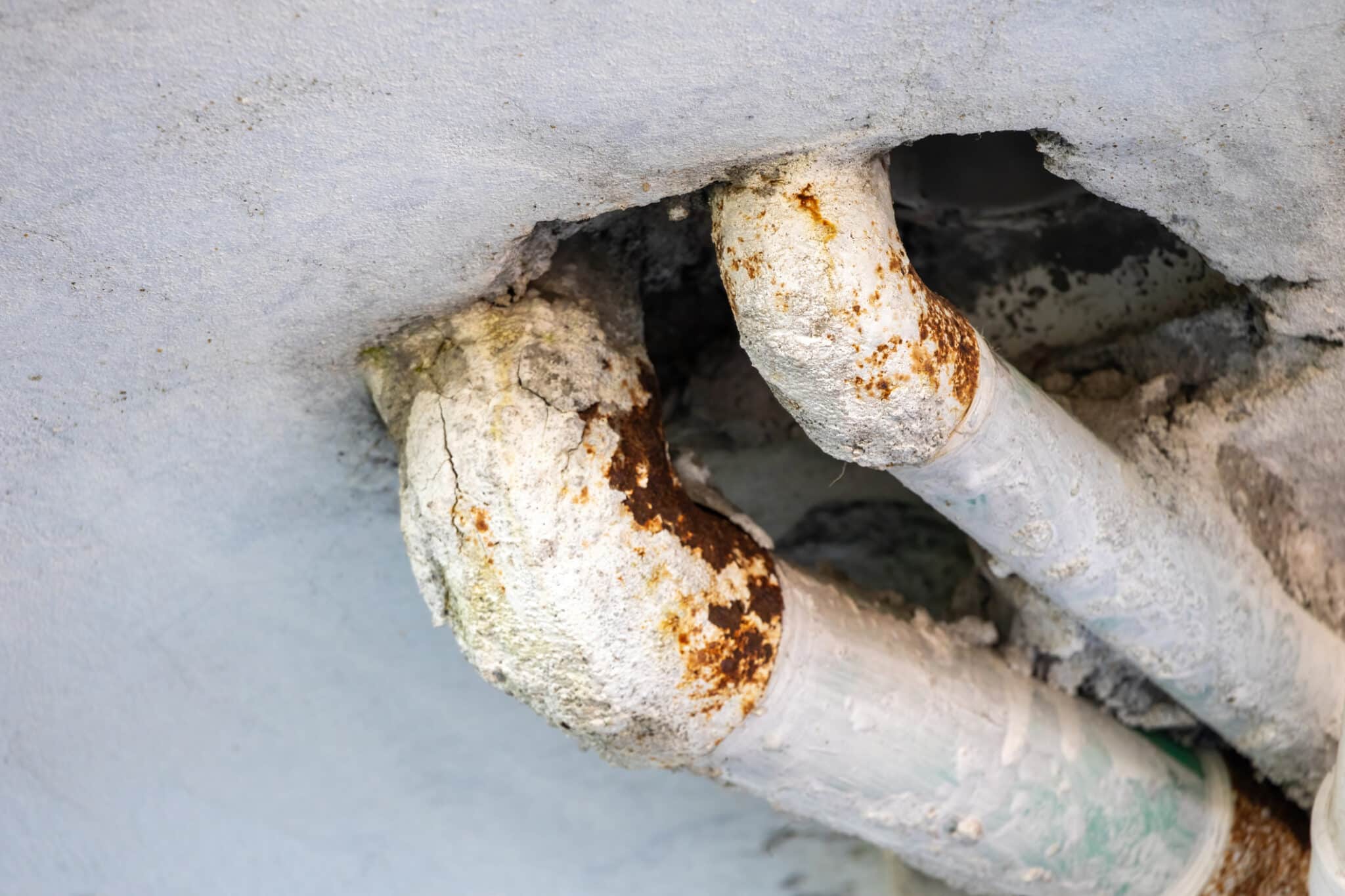Pipe Lifespan 101: When to Repair, When to Replace

Understanding the pipe lifespan in your home is crucial for maintaining its plumbing system’s integrity and functionality. In Kingman, AZ, and surrounding areas, homeowners often face the challenge of deciding whether to repair or replace their aging pipes. This decision can significantly impact both the performance of your plumbing system and your wallet. Knowing the signs of wear and tear, along with the material-specific lifespans of pipes, can guide you toward making the right choice.
Pipes, like any other component of your home, have a finite lifespan, which varies depending on the materials they are made from. In Parker, AZ, for example, the harsh water conditions can influence how long your pipes last before needing attention. Recognizing the early signs of aging such as decreased water pressure, discoloration of water, or frequent leaks is essential in preventing more significant issues down the line.
Expert tips often emphasize the importance of regular maintenance to extend the pipe lifespan. Simple steps, such as monitoring water pressure and quality, can provide early indications of potential problems. When these issues are addressed promptly, repairs can often extend the life of your pipes significantly, delaying the need for a complete replacement.
However, there comes a time when repairing is no longer a viable option, and replacement becomes necessary. This decision should be based on the age of the pipes, the frequency of repairs, and the advice of plumbing professionals. In Kingman, AZ, Benjamin Franklin Plumbing experts can offer personalized advice, ensuring that homeowners make informed decisions about their plumbing systems, balancing considerations of pipe lifespan, cost, and the overall health of their plumbing system.
Understanding Pipe Lifespan: Basics and Importance
Understanding the basics of Pipe Lifespan is foundational to maintaining a healthy plumbing system. Pipe Lifespan refers to how long a particular type of pipe material can reliably function before it needs repair or replacement. Different materials used in pipe manufacturing come with varying lifespans. For instance, copper pipes can last more than 50 years, while PVC pipes might need attention after 25 to 40 years. Homeowners in Kingman, AZ, should consider these material-specific Pipe Lifespan ranges when evaluating their plumbing systems.
The importance of knowing the Pipe Lifespan of your home’s plumbing cannot be overstated. It helps in forecasting future expenses and planning for replacements before emergencies arise. Regular inspections can catch early signs of wear, such as rust or corrosion in metal pipes, allowing homeowners to take action before problems escalate. This proactive approach not only helps avoid damage but also contributes to extending the overall Pipe Lifespan of your plumbing system.
However, not all issues can be solved with repairs. When plumbing reaches the end of its Pipe Lifespan, it may become more of a liability than an asset. Frequent breakdowns can lead to costly repairs that surpass the price of installing new pipes. At this stage, consulting with professionals in Parker, AZ, can provide clarity on whether to continue with repairs or opt for replacement, based on the actual Pipe Lifespan of the materials in use.
Ultimately, the decision to repair or replace pipes should be informed by their current condition and expected Pipe Lifespan. Homeowners should weigh the costs and benefits, considering both immediate expenses and long-term implications. Expert advice from plumbers can guide this decision, ensuring the plumbing system remains reliable and efficient for the duration of its Pipe Lifespan.

Photo from iStock – Credit: roibu
Signs Your Pipes May Be Aging
Recognizing the signs of aging in your pipes is crucial for maintaining a healthy plumbing system and maximizing Pipe Lifespan. In Kingman, AZ, homeowners may notice reduced water flow, which often indicates a buildup of minerals or corrosion inside the pipes. These symptoms not only hinder the performance of your plumbing but also serve as early warnings that the Pipe Lifespan may be nearing its end. Addressing these signs early can help extend the Pipe Lifespan, ensuring your home’s plumbing continues to operate efficiently.
Another clear indicator of deteriorating pipes is the presence of discolored water coming from your taps. This issue particularly common in areas like Parker, AZ suggests internal pipe corrosion, a major factor in shortening Pipe Lifespan. Corroded pipes are more prone to leaks, which not only waste water but can also cause significant water damage to your home. Prompt consultation with a plumbing professional upon noticing discolored water can prevent further damage and help preserve or reevaluate the remaining Pipe Lifespan.
Frequent leaks are one of the most telling signs that your plumbing system may be approaching or has exceeded its expected Pipe Lifespan. Even small, recurring leaks often reflect a loss of structural integrity in aging pipes. In such cases, it’s essential to assess whether patchwork repairs are sufficient or if a full replacement is the more cost-effective route. Often, replacing old pipes before complete failure leads to fewer disruptions and greater savings over time, extending the new system’s Pipe Lifespan from the start.
Lastly, persistent plumbing issues should not be ignored. Consulting with a professional plumber is the most reliable way to determine whether your system requires repairs or a full overhaul. These experts evaluate multiple factors including Pipe Lifespan, pipe material, and the severity of wear to guide homeowners in making well-informed decisions. This professional insight ensures that your plumbing system remains dependable, safe, and aligned with the expected Pipe Lifespan of its components.
Material Matters: Lifespan of Different Pipe Types
Understanding the material from which your pipes are made is key to estimating their lifespan. For example, in Kingman, AZ, homes with brass or galvanized steel pipes can expect a durability of 40 to 70 years. Conversely, PVC pipes, commonly used for drain lines, typically last 25 to 40 years. Knowing these specifics helps homeowners plan for future maintenance or replacement needs, ensuring the longevity of their plumbing systems.
In Parker, AZ, the type of water running through pipes can affect their lifespan. Hard water, which is prevalent in the area, can accelerate the wear and tear on pipes by depositing minerals that corrode metal and clog lines. This makes regular inspections a critical practice for extending the pipe lifespan. Homeowners should consult with plumbing professionals to assess the condition of their pipes and determine the best course of action.
The decision to repair or replace pipes is not just about age but also about the material’s resilience to environmental factors. For instance, copper pipes are known for their longevity and resistance to corrosion, making them a favorable option for many. However, even copper pipes can succumb to pinhole leaks, a common issue that signals it might be time for repairs or a complete system overhaul. This decision heavily relies on professional evaluations and the homeowner’s budget considerations.
Finally, proactive maintenance can significantly influence the pipe lifespan, regardless of the material. Homeowners who regularly check for signs of wear, such as leaks or corrosion, and address these issues promptly, can avoid the costly expenses associated with emergency repairs or full replacements. Engaging with a trusted plumbing service in your area ensures that your home’s plumbing system remains in optimal condition, safeguarding your investment and ensuring peace of mind.
The Impact of Water Quality on Pipe Lifespan
The quality of water running through your pipes plays a significant role in determining their pipe lifespan. In Kingman, AZ, where water hardness can vary, the mineral content in the water can lead to faster degradation of pipe materials. This process, known as scaling, can reduce water flow and efficiency over time. Homeowners should consider the impact of water quality when assessing the need for pipe repairs or replacement.
Regularly testing water quality in your home can provide valuable insights into the health of your plumbing system. For residents in Parker, AZ, identifying high levels of minerals early can help prevent long-term damage to pipes. This proactive approach allows for the implementation of solutions, such as water softeners, to mitigate the adverse effects of hard water. Taking these steps can extend the pipe lifespan and ensure the plumbing system remains functional.
Understanding the relationship between water quality and pipe materials is crucial for maintaining a healthy plumbing system. Certain materials, like copper and PVC, may react differently to the minerals present in hard water. This knowledge enables homeowners to make informed decisions about which pipe materials are best suited for their local water conditions. It also highlights the importance of consulting with plumbing professionals who can offer tailored advice based on water quality and pipe material compatibility.
Finally, implementing a regular maintenance schedule that includes water quality testing can significantly impact the longevity of your pipes. This practice not only helps in identifying potential issues early but also in planning for necessary interventions that can prevent costly repairs or replacements. By staying informed about the quality of water in your home and its effects on your pipes, you can take proactive steps to safeguard your plumbing system, ensuring its reliability for years to come.
When to Repair vs. When to Replace: Expert Advice
Deciding between repairing and replacing pipes hinges on understanding their condition and how it impacts the pipe lifespan. In Kingman, AZ, professionals often suggest repairs for minor issues that don’t significantly affect the overall system. These can include fixing small leaks or replacing short sections of pipe. However, if problems persist or affect large portions of the plumbing, replacement may be the more cost-effective choice.
In Parker, AZ, the decision also depends on the material of your pipes and their age. For instance, older metal pipes that show signs of corrosion or frequent leaks might be better off replaced to prevent future problems. On the other hand, newer PVC pipes with minor issues could simply be repaired. This approach ensures the plumbing system remains functional without unnecessary expense.
Consulting with a plumbing expert can provide homeowners with the insights needed to make the best decision. These professionals can assess the health of your pipes, considering factors like age, material, and the severity of any damage. Their advice is invaluable in determining whether the current issues can be resolved with repairs or if a full replacement is necessary to ensure the system’s longevity.
Ultimately, the goal is to maintain a plumbing system that works efficiently and reliably. Regular maintenance and timely repairs can extend pipe lifespan, but there comes a point when replacement is the smarter investment. Homeowners should weigh the costs and benefits of each option, keeping in mind the future of their plumbing system. Making an informed decision helps avoid more significant issues down the line, ensuring the smooth operation of your home’s plumbing.
Cost Analysis: Repairing vs. Replacing Pipes
When considering the costs associated with repairing or replacing pipes, homeowners in Kingman, AZ, should evaluate both short-term and long-term financial impacts. Repairing might seem less expensive initially, but if frequent fixes are needed, costs can quickly add up. On the other hand, replacing pipes involves a higher upfront investment but can save money over time by reducing the need for future repairs. This decision requires careful consideration of the pipe lifespan and the overall condition of the plumbing system.
In Parker, AZ, the material of the pipes plays a significant role in the cost analysis. For example, repairing copper pipes might be more cost-effective due to their longer lifespan compared to PVC pipes, which might be cheaper to replace altogether. Homeowners must assess the type of material their pipes are made from and its expected durability when deciding between repair and replacement. Consulting with a plumbing professional can provide valuable insights into the most financially sensible option.
The frequency of plumbing issues also influences the cost-effectiveness of repairing versus replacing. If a homeowner notices that repairs are becoming more frequent, it might indicate that the plumbing system is nearing the end of its useful life. In such cases, investing in new pipes could prevent the accumulation of repair bills and ensure a more reliable plumbing system. This proactive approach can ultimately lead to significant savings and less inconvenience.
Lastly, it’s important for homeowners to consider the age of their plumbing system when analyzing costs. Pipes that are close to or have exceeded their expected lifespan might warrant replacement to avoid the risk of major failures that could result in expensive water damage. By keeping the pipe lifespan in mind, residents of Kingman, AZ, and Parker, AZ, can make informed decisions that balance immediate expenses with long-term benefits, ensuring the efficiency and reliability of their plumbing systems.
Preventative Measures to Extend Pipe Lifespan
Homeowners can take proactive steps to extend the pipe lifespan, ensuring their plumbing system remains robust over the years. Regularly cleaning your pipes prevents the buildup of harmful materials that can cause corrosion or blockages. In Kingman, AZ, using water softeners can mitigate the effects of hard water, preserving the integrity of the pipes. This simple measure can significantly reduce the risk of premature wear and tear.
In Parker, AZ, scheduling annual inspections with a trusted plumbing professional can also play a crucial role in maintaining pipe health. These experts can spot potential issues before they escalate, allowing for timely interventions. Whether it’s a small leak or the early signs of corrosion, catching problems early can save homeowners from costly repairs or replacements down the line. Regular checks ensure that your plumbing system operates efficiently, extending its lifespan.
Another effective strategy is to be mindful of what goes down your drains. Avoid flushing harsh chemicals, oils, and non-biodegradable materials, as these can damage your pipes over time. Educating the household on proper disposal methods can prevent blockages and chemical corrosion, key factors in maintaining pipe longevity. This practice not only protects your plumbing but also contributes to a healthier environment.
Lastly, upgrading fixtures and appliances to more efficient models can reduce strain on your plumbing system. Low-flow toilets and showerheads, for example, decrease water pressure and usage, lessening the wear on pipes. Implementing these changes can lead to a noticeable improvement in pipe lifespan, offering peace of mind to homeowners. By adopting these preventative measures, residents of Kingman, AZ, and Parker, AZ, can ensure their plumbing systems remain in top condition for years to come.
Choosing the Right Professional for Your Plumbing Needs
When it comes to ensuring the longevity of your plumbing system, choosing the right professional is critical. In Kingman, AZ, homeowners should look for plumbers who specialize in assessing pipe lifespan. These experts can provide tailored advice based on the specific needs of your home. Their knowledge ensures that any decision to repair or replace pipes is well-informed and cost-effective.
In Parker, AZ, the right plumbing professional will not only have a deep understanding of local water conditions but also of how they affect different materials. This insight is invaluable for homeowners looking to extend the life of their pipes. By selecting a plumber with local expertise, you can avoid common pitfalls and ensure that your plumbing system remains robust.
It’s essential to choose a plumber who values transparency and communication. A good professional will explain the condition of your pipes clearly and outline all your options. This approach allows homeowners to make decisions with confidence, knowing they have all the necessary information.
Finally, the best plumbing professionals offer ongoing support and maintenance advice. They understand that extending the pipe lifespan is an ongoing effort that requires regular attention. By establishing a relationship with a trusted plumber, homeowners in Kingman, AZ, and Parker, AZ, can ensure their plumbing systems receive the care they need to last for years to come.

Photo from iStock – Credit: MassimoVernicesole
Frequently Asked Questions
What factors affect Pipe Lifespan?
Several factors can impact the lifespan of your pipes. Material type, such as copper or PVC, plays a crucial role in durability. Regular use and water quality, including hardness, can also affect their condition over time. Lastly, external pressures, like tree roots and weather changes, can cause damage, shortening their lifespan.
How do I know when to replace pipes?
Recognizing when to replace pipes is key to maintaining a healthy plumbing system. Frequent leaks signal that your pipes are nearing the end of their pipe lifespan. Discolored water indicates corrosion inside, which can compromise water quality. If you notice these signs, consulting with a professional, like those at Benjamin Franklin Plumbing in Kingman, AZ, is a wise step to ensure your home’s plumbing integrity.
Can regular maintenance extend lifespan?
Yes, regular maintenance can significantly extend the life of your pipes. By scheduling routine checks, professionals can spot and fix minor issues before they escalate. This preventive approach helps avoid major repairs, keeping your plumbing system in top shape. Trusting experts like Benjamin Franklin Plumbing in Kingman, AZ, ensures your pipes maintain optimal performance for longer.
What are common signs of pipe failure?
Common signs of pipe failure include unexpected drops in water pressure, which often suggest a leak or blockage. You might also hear banging noises within your walls, indicating loose or damaged pipes. Frequent clogs or backups in your system can signal severe pipe deterioration. Lastly, visible rust or water stains on walls or ceilings are clear indicators that your pipes need attention from professionals like those at Benjamin Franklin Plumbing in Kingman, AZ.
How does material choice impact Pipe Lifespan?
The material of your pipes plays a crucial role in determining their lifespan. Copper and PEX tend to last longer, offering decades of reliable service. On the other hand, materials like galvanized steel might require replacement sooner due to corrosion risks. Choosing the right material with help from Benjamin Franklin Plumbing in Kingman, AZ, can ensure your plumbing system remains robust for years.


















